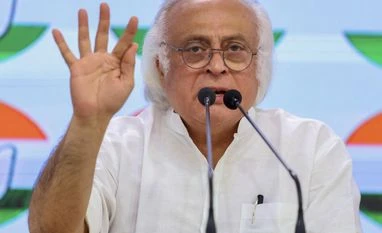Gandhi Jayanti 2025: History, significance and all about 'father of nation'
On October 2, people around the world will celebrate the 156th anniversary of Mohandas Karamchand Gandhi's birth, also known as Mahatma Gandhi, as the International Day of Non-Violence
)
Full size
Listen to This Article
The birth anniversary of Mahatma Gandhi, one of the most famous figures in India's fight for independence, is commemorated annually on October 2nd as Gandhi Jayanti. Known lovingly as "Bapu" or the "Father of the Nation," Gandhi was a lawyer, politician, and social activist who supported peaceful opposition to British colonial control.
The country will celebrate his 156th birthday in 2025, honouring Gandhi's legacy of simplicity, truth, and non-violence. Bapu's values of truth and non-violence are celebrated via prayers, cultural events, and tributes by Indian communities both in India and abroad.
Gandhi Jayanti 2025 Date:
Every year on October 2nd, India commemorates Gandhi Jayanti, the birth anniversary of Mahatma Gandhi, who played a pivotal role in the freedom struggle.History of Gandhi Jayanti
On October 2, 1869, Mahatma Gandhi was born in Porbandar, Gujarat. Leading non-violent campaigns against British rule, he played a significant role in India's fight for independence. India became an independent nation in 1947 as a result of his leadership and the dedication of many freedom warriors.
People throughout the world were inspired by Gandhi's Satyagraha concept, which was based on truth and non-violence. Gandhi Jayanti became a national holiday in India after his killing in 1948. In addition to honouring his legacy, the day is commemorated to encourage harmony, peace, and non-violence.
Significance of Gandhi Jayanti
Mohandas Karamchand Gandhi, who was born in Porbandar, Gujarat, in 1869, used the potent tools of Satyagraha (truth-force) and ahimsa (non-violence) to lead a number of Indian independence campaigns, such as the Quit India, civil disobedience, and non-cooperation movements. Many were motivated to actively participate in demonstrations against colonial rule in India by his words and deeds.
Also Read
In addition to influencing India's path toward independence, his ideas served as an inspiration for civil rights organisations worldwide. Leaders such as Nelson Mandela and Martin Luther King Jr. have publicly recognised Gandhi's impact on their own fights for equality and justice.
How is Gandhi Jayanti celebrated?
Gandhi Jayanti is celebrated with memorial services and cultural activities. At New Delhi's Raj Ghat, the President, Prime Minister, and other dignitaries pay their tributes on October 2. At cultural events hosted by schools and other educational institutions, kids frequently perform Raghupati Raghav Raja Ram, Bapu's favourite bhajan.
In order to preserve his legacy via education and innovation, the day is also commemorated with debates, movie screenings, and fancy-dress contests. To honour Gandhi's dedication to nonviolent protest, the UN proclaimed October 2 to be the International Day of Non-Violence.
Along with Republic Day and Independence Day, Gandhi Jayanti is one of India's three national holidays. Across the nation, prayer services, memorial ceremonies, and cleanliness campaigns are held to commemorate the day.
Gandhi's life and ideas are reflected in lectures, performances, and essay contests that are organised by government agencies, schools, and colleges. At Raj Ghat in New Delhi, where Mahatma Gandhi's samadhi is kept, leaders from all around the country also pay their respects.
More From This Section
Topics : AstaGuru
Don't miss the most important news and views of the day. Get them on our Telegram channel
First Published: Oct 08 2025 | 7:48 PM IST


